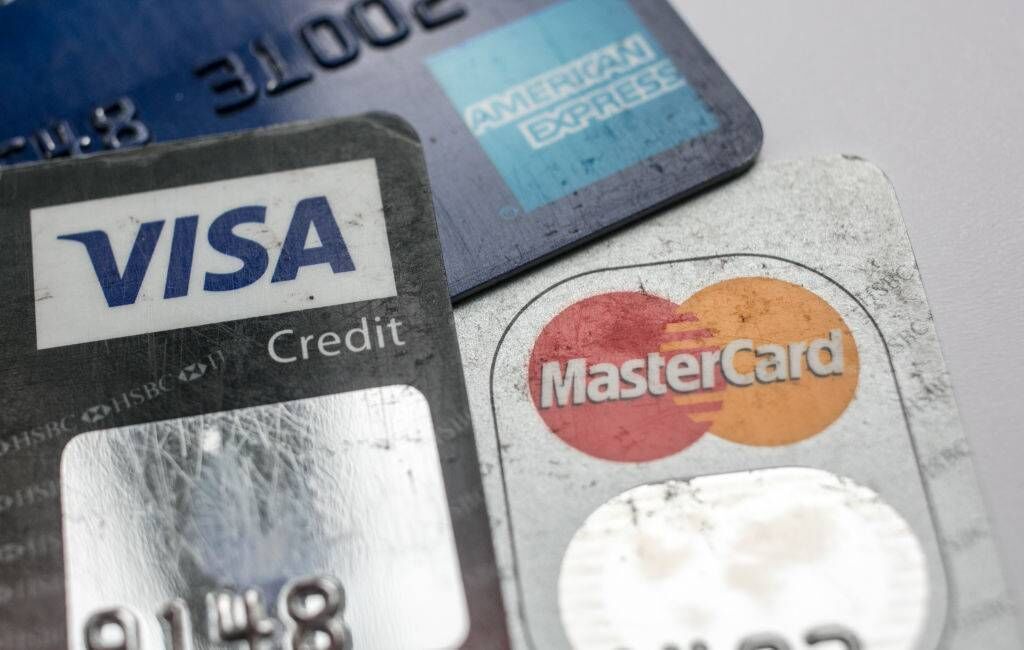Using credit card for back to school costs adds to long-term pain

Back to school costs can be staggering but using a credit card to pay them can cost you in the long term. Picture: PA
Some 27% of parents get into debt over back to school costs. While this figure is down from 36% in 2019, the average debt has increased by €40 from €357 to €397.
More of us are using the credit card as our weapon of choice. Some 20% of parents fund back to school costs with credit cards, up from 13% last year. These figures all come from the Irish League of Credit Union’s (ILCU) recent back to school survey.
The thing about credit cards is that they have a split personality. Pay off your full balance on time each month and they are the cheapest form of credit out there. But if you miss a payment, or even just pay the minimum, you’ll end up paying the highest penalties and interest in banking.
The minimum repayment amount is a bit of a cod. It is sized so that it largely takes care of the interest, and doesn’t make much of a dent in the capital. You pay it on time and they don’t hit you with any penalties, but they do charge you anything up to 26.6% on that large, rolling balance. And that’s how they make money.
If you’re struggling under a lot of credit card debt, it’s well worthwhile checking out the Competition and Consumer Protection Commission’s credit card ready reckoner. This will tell you very quickly just how long it’s going to take you to pay off your card.
For example: Suppose you have a balance of €1,000 and you’re paying off €50 a month at a rate of 22.9% — which is the APR on purchases currently charged by AIB’s Mastercard and Visa card, and by Avantcard, Chill Money, and An Post Money’s credit card. At that rate — and assuming you stop using your card — you won’t have the debt paid off for two years and two months. And the total amount you’ll end up paying will be around €1,270.

If you were to double your repayment amount to €100, you would have the debt cleared in a year, plus you’d save yourself €150 in interest.
Doubling your repayment amount may not be an option, in which case you should consider switching to a credit card with a lower interest rate. Six years ago, there were only two providers offering zero percent on balance transfers, but we’ve seen a host new entrants into the market, several of which offer attractive deals on balance transfers.
The best of these is Ulster Bank’s Black MasterCard, which gives you 0% on balance transfers for a full year, after which the APR on purchases of 16.1% kicks in. An Post also offers 0% on balance transfers for a year, but their aforementioned APR (22.9%) is one of the highest in the market.
Once you switch, you’ll have to make sure to close your old account, and when you do, you’ll have to stump up the €30 stamp duty that the government takes annually from every credit card account. To ensure that you’re not charged the same duty on your new card, it’s vital to ask your old provider for a letter of closure which you then forward to the new company.
Another alternative is to take out a credit union loan to pay off the outstanding debt. Interest rates on credit union loans can be well below 7%, making this one a no-brainer if you can’t get a zero percent switching deal from another credit card provider. Some credit unions offer specific loans designed to replace credit card debt. The rates offered, while better value than credit cards, are still quite high, however. You’re looking at APRs of close to 12.68%, which is the maximum that credit unions are allowed to charge. For the financial year 2018, credit unions affiliated to the Irish League of Credit Unions had an average standard loan rate of 10.66%.
Funnily enough, there are plenty of people out there who are saving and carrying large credit card balances at the same time. Deposit rates are pretty miserable at the moment; if you’ve got a couple of grand in the bank and at the same time you’re carrying a credit card debt of €1,000, even if it’s at the lowest credit card rate that’s out there at the moment (AIB CLICK visa’s 13.8%) you will still save yourself a packet by simply paying off the credit card.
For those struggling under a lot of credit card debt, the first and most obvious step is to stop using the card. Simple, but not always easy, especially when online shopping makes it so ridiculously effortless to spend a fortune in a couple of minutes. Deleting the card from your account can help to stifle impulse buying.
The other obvious piece of advice is to pay as much as you can each month. In addition to getting rid of the debt faster, you’ll also cut the total cost of the credit. No harm either in simply asking your credit card provider to reduce the rate you’re paying for a certain period of time. Tell them you’re going to leave unless they do something. You’d be surprised what a little haggling can get you.
If you just can’t do without the card, try reducing the credit card limit, and whatever you do, don’t miss any repayments or underpay the minimum amounts. The penalties if you do are cruel, while late payments may show up in your credit history. Think about setting up a standing order or direct debit to ensure this doesn’t happen.
The other cardinal rule is to not use the card to withdraw cash. The interest rates are high, the interest itself hits your account from the moment you take out the cash, and there’s also a cash advance fee. AIB, for example, charges a commission of 1.5% on all cash withdrawals, with a minimum levy of €1.90. KBC charges the same. Ulster Bank also charges 1.5% of the cash amount, with a minimum of €2.54.
Note too that if you’re using your card abroad, your credit card issuer is taking a juicy commission every time you use your card for a non-euro transaction. AIB’s Visa for example takes 1.75% of the transaction value in Europe (non-euro countries only) and 2.75% in the rest of the world. Bank of Ireland charges a cross border handling fee of 2.25% of the transaction.
The Competition and Consumer Protection Commission also advises that if you have payment protection insurance (PPI) on your credit card, double-check to see if it’s actually worth it. PPI usually only covers the minimum repayment amount for a limited period of time and is charged as a percentage of your outstanding balance, so the more you owe, the more you pay for it.
If none of these solutions work for you and the debt has become simply unmanageable, talk to the Money Advice and Budgeting Service (MABS). This is an excellent, free service that has brought an end to sleepless nights for thousands of people.











